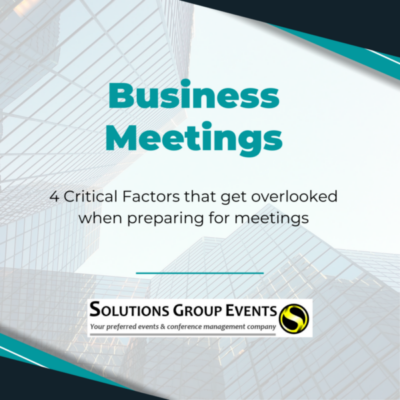
MAXIMISING YOUR KEYNOTE SPEAKER

Make your speaker part of your marketing and education campaigns.

You’ve spent a long time researching the perfect speaker for your event. You’ve found someone with the experience and expertise in your topic by watching videos to make sure their presentation style is compatible with your audience, justifying the fee in your budget-planning meetings.
 After all this work, it seems a waste to hire the person simply for the keynote and a photo opportunity. Instead, planners are asking speakers for additional activity before, during, and after the event to make sure their attendees and the event host reap the full benefit of the speaker’s knowledge and reputation.
After all this work, it seems a waste to hire the person simply for the keynote and a photo opportunity. Instead, planners are asking speakers for additional activity before, during, and after the event to make sure their attendees and the event host reap the full benefit of the speaker’s knowledge and reputation.
Diane Goodman of Goodman Speakers Bureau says that “many clients don’t want just 45 minutes from a keynoter; they want something more.” She says this could take the form of a half-day leadership seminar or a follow-up webinar to discuss how to put the ideas from the keynote into practice. In some instances, a keynote speech can act as a catalyst for an organization—a way to introduce ideas to the audience and then have the speaker become a consultant as their business or work strategies are adopted.
Brian D. Palmer, senior vice president of the National Speakers Bureau, says that “it’s much more accepted now to have a high-profile speaker participate in a moderated Q&A.”
Such a session can ensure that the audience gets its money’s worth, particularly if the keynote presentation is not customized for the event. Planner can solicit questions ahead of time (for example, at registration) so that attendees feel they have personal access to the speaker’s expertise. Also, try to arrange the Q&A session for later in the day so that people have had time to digest the initial presentation and can prepare to ask questions in person. In between sessions, host the speaker for lunch with a selection of attendees chosen by the keynote’s sponsor, or through a lottery that you promote ahead of the event to generate buzz.

Tim Mathy, senior partner at Speak Inc, agrees that more can be asked for beyond the talk itself. Planners sometimes ask a speaker to write an article before the event or agree to be part of one or a few breakout sessions after the keynote. Depending on the speaker, the advantages can go both ways. For example, the event can include a book signing with sales of the speaker’s book, while local media interviews can boost the profile of the event and the speaker.
 Tim Mathy, senior partner at Speak Inc, agrees that more can be asked for beyond the talk itself. Planners sometimes ask a speaker to write an article before the event or agree to be part of one or a few breakout sessions after the keynote. Depending on the speaker, the advantages can go both ways. For example, the event can include a book signing with sales of the speaker’s book, while local media interviews can boost the profile of the event and the speaker.
Tim Mathy, senior partner at Speak Inc, agrees that more can be asked for beyond the talk itself. Planners sometimes ask a speaker to write an article before the event or agree to be part of one or a few breakout sessions after the keynote. Depending on the speaker, the advantages can go both ways. For example, the event can include a book signing with sales of the speaker’s book, while local media interviews can boost the profile of the event and the speaker.
In most cases, a speaker will be open to cross-promotional activities, including using his or her social media to reference the appearance at your event, adding links to your registration page on their website, and after the event, posting photos of themselves with your attendees.
Clarify to the speaker ahead of time the ways in which you intend to use his or her appearance after the event.
Bob Mitchell, formerly senior director at Keppler Speakers, says that the event’s content provides the sheen on the organization’s brand after the event itself. So, repurposing the speaker’s contribution in blog posts, video clips, and photos can burnish the reputation of the event host and the keynote speaker.

Contents Per meetingsnet.com




